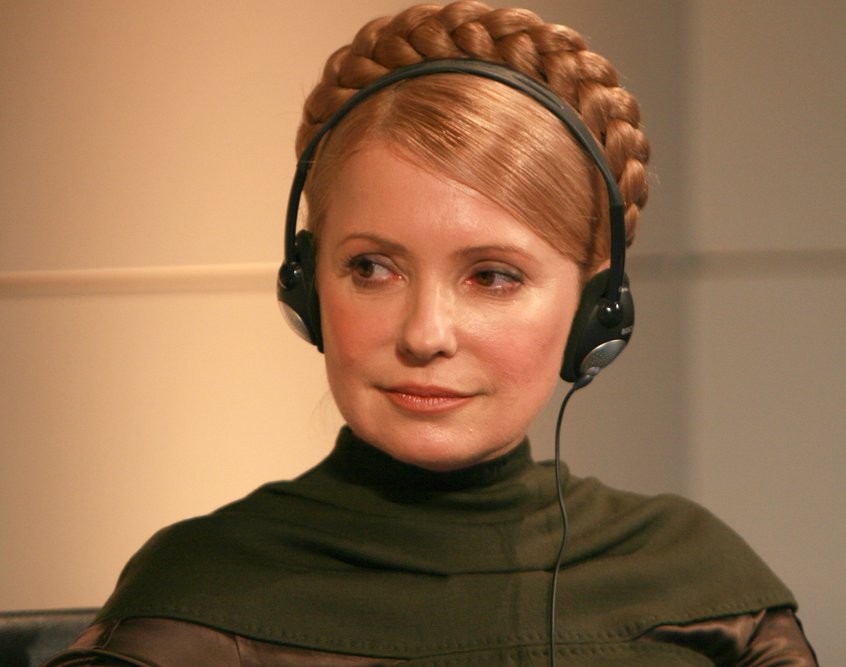Doubts have been raised in Ukraine about a plan to build a 2,295-km-long “wall” to seal off its border with Russia, a project championed by Ukrainian Prime Minister, Arseniy Yatsenyuk (pictured).
Senior politicians and military experts have said it would not prevent an invasion, and one civil society group has warned that building it would just invite corruption.
Dubbed the “European Rampart” by some in Ukraine, the plan calls not for a continuous wall but rather a string of defensive structures including ditches, vehicle-barrier trenches and surveillance towers to detect troop and vehicle movements, the Ukrainian government has said.
According to the plan put forward by Ukraine’s State Border Service and the National Security and Defense Council, the wall would stretch along the entire border with Russia and with the annexed Crimean peninsula.
The idea was first voiced in June by Ukrainian billionaire Ihor Kolomoisky, who co-owns Privat Bank and governs the oblast, or province, of Dnipropetrovsk. At the time he offered to donate $124m (€100m) for the project.
There are the Great Wall of China, the Maginot Line and Mannerheim Line – none of this worked well to defend countries during military aggression– Former Ukrainian prime minister Yulia Tymoshenko
Since then it has been championed by Prime Minister Yatsenyuk. According to the Kyiv Post, he said recently that “nobody will grant a visa-free regime to Ukraine if there is no actual border.”
At an 8 October meeting of the Ukrainian cabinet, Yatsenyuk said that the wall would cost $82m (€66m) to build, the Kyiv Post reported, adding that one week later he said that the European Union had extended some $17m to help cover the cost.
In its analysis, the newspaper said the $82m figure seemed far too low for such a project, and pointed out that Israel’s 800-km “anti-terrorist fence” had already cost $2bn to date, and wasn’t finished.
Yulia Tymoshenko, a former prime minister of Ukraine and leader of the Batkivshchyna (“Fatherland”) Party, has spoken out against the wall. She told a television talk show in September: “We don’t have any good historical examples. There are the Great Wall of China, the Maginot Line and Mannerheim Line – none of this worked well to defend countries during military aggression.”
Ukrainian political analyst Volodymyr Fesenko, of consultancy, Penta, is reported to have described the wall project as a “stupid public relations stunt.”

Former Ukrainian prime minister Yulia Tymoshenko in 2009 (Wikimedia Commons)
Others have said it could do more harm than good. Daria Kaleniuk, executive director of the Kyiv-based Anticorruption Action Centre, said it could encourage money-laundering and corruption, which could only be prevented by bringing in foreign experts to oversee the project.
“They should have access to the documents and also it would be a good thing to invite foreign construction specialists to supervise and control the quality of the work,” Kalenyuk told the Kyiv Post.
But Prime Minister Yatsenyuk’s supporters remain firm on the benefits of the wall.
“As long as Ukraine’s borders are not protected, Ukraine is unprotected and so the country couldn’t be a member of the European Union,” Viktoria Siumar, a former National Security and Defense Council official, told Kyiv Post. “The entire eastern border with Russia is not secure – Ukraine has no control over its border in Luhansk and Donetsk oblasts.”
Criticism of the plan has been widely reported in Russia.
Yesterday, the head of Russia’s Federal Agency for the Development of the State Border Facilities, Konstantin Busygin, was reported by news agency TASS to have said: “From the viewpoint of economics and politics, in my view, this is an unnecessary step.”Â
He added: “At a certain point, Germany was divided by a wall. And this one, even if it’s built, it’s all the same, temporary – it will be broken sooner or later.”
Main photograph: Ukrainain Prime Minister Arseniy Yatsenyuk visits a newly constructed section of the Ukrainian-Russian border near the Goptivka border crossing on October 15, 2014 (Sergey Bobok/AFP/Getty Images)










